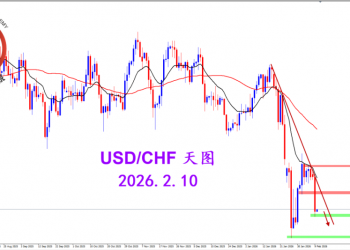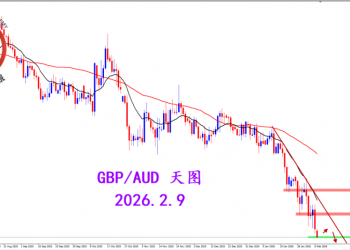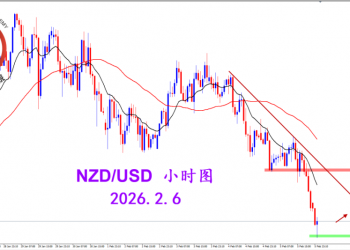Daily FX
Euro Slides As France Calls For An Emergency Meeting at EU Summit
Thursday June 16, 5:39 pm ET
By Kathy Lien, Chief Strategist
Euro Slides As France Calls For An Emergency Meeting at EU Summit
US Philly Fed Index Plunges, Causing Concern For National ISM
UK Consumer Spending Growth Continues to Weaken
US Dollar
The dollar is acting rationally against every other major currency except for the euro and the Swiss franc. Today's much weaker than expected Philadelphia Fed survey should have sent the dollar plunging. It did, but only momentarily before the pair did a 360-degree turn to collapse back to the early European trading levels. The dollar did however sell-off against the British Pound, as well as the Australian, New Zealand and Canadian dollar. The market had originally expected the Philly Fed survey to improve to 10.0 from 7.3 in May. To everyone's surprise and in complete contrast to the Empire State survey, the Philly Fed plunged to 2.2. Both new orders and shipments eased, providing cause for concern. The expectations and employment components edged higher, suggesting that the components were stronger than the headline report. Even so, there is no denying that the latest release could push the national ISM index below the 50 boom/bust line. In the continual "when will the Fed stop tightening" debate, Kansas City Fed President Hoenig shed some more light on Fed's policy. He said that the Fed wants to get to the neutral rate 'sooner rather than later'and that most economists are predicting that neutral lies somewhere between 3.50% and 4.50% - so that will be what they are shooting for. His comments are a bit more hawkish and suggest that recent data has not deterred the Fed's policy makers. A quarter point hike is a shoe-in at the end of this month with an August rate hike also a near certainty. After that, the rest is pretty much up in the air. The fact that oil prices climbed to a two month high is also disconcerting. Greenspan has already warned that they are closely watching the trend of energy prices. If you recall, rising oil prices was one of the primary triggers for the slow patch that the global economy entered around November of last year. Since then, the world has been struggling to grow.
Euro
The European Summit across the Atlantic has made it very difficult for the Euro to rally with each move higher met with equally strong selling interest. Things are not going well out there. French President Chirac called for an emergency summit to discuss the European Union's future. Everyone attending the summit agreed that they have lost touch with the needs of their citizens and need to do some 'soul-searching.' The progress so far is summed up best by Edward Hughs on a Fistful of Euros - 'European leaders plunged into a full-blown crisis at a summit, with a battle raging over long-term EU financing and their lofty plans for an EU constitution nearly in tatters...French President Jacques Chirac called for an emergency meeting to extricate the bloc from the mess created by deep splits over the bloc's budget and by a growing popular revolt against the proposed EU treaty. Leaders had hoped a deal on the 2007-2013 EU budget would let them show a united front after French and Dutch voters delivered stinging rejections of their constitution, meant to lay the ground rules for an enlarged 25-nation alliance. Instead, the summit was overwhelmed by an embarrassing squabble over money, with British Prime Minister Tony Blair refusing demands by the other 24 EU nations, led by France, that he surrender an annual budget rebate.
British Pound
Rocketing higher earlier on in the session, merely missing the 1.8300 figure, the British pound plummeted on rather tepid retail sales figures as whispers of a slowdown were heard throughout the market. Expected to rise to a 1.8 percent reading in the month of May, the report rose a disappointing 1.3 percent on an annualized basis. Additionally disappointing was the fact that the consensus estimate was far below the previous period's 2.3 percent rise and continues the overall decline in the figure since September of 2004. So far sales receipts, indicative of consumer demand, has fallen from a high of 7.2 percent over the past nine months suggesting softer consumption patterns. As a result, coupled with softer housing data earlier on in the week, there seems to be increasing justification for the recent rate decision by the Bank of England officials. With that said, speculation looks to be mounting on an expected rate cut decision to once again bolster consumer demand and boost the paltry production figures as of late. Currently, short sterling futures are pricing in no further hikes in the benchmark repurchase rate with any subsequent cuts unbecoming till earlier in 2006.
Japanese Yen
Gaining for the third straight session, the Japanese yen moved higher on better than expected machine tool orders data and relatively nothing else. With suggestions of a slowdown in global foreign demand, economists were pleasantly surprised as orders rose more than expected. Rising 2.5 percent on an annualized basis in the month of April, the data resides below the 13.2 percent surge in the previous period and may be indicative of a retracement till inventories are reestablished in the near term. Separately, the currency of the world's second largest economy did not seem hampered by two-month highs hit by crude oil during the session, touching intraday highs of $56.90. This is particularly interesting since Japan imports close to 98% of its oil and should crude prices continue to rise, output would be adversely affected, as would the spot rate. Taking that into consideration, traders will be looking towards the leading and co-incident indicators tomorrow as the final April figures are set for release. Estimated to improve slightly over the month, the leading indicators may contribute little towards price action capping the week, as it is a compendium of previous releases and subsequently highly predictable. |
 2026.2.11 图文交易计划:磅加坚决阴线 适313 人气#黄金外汇论坛
2026.2.11 图文交易计划:磅加坚决阴线 适313 人气#黄金外汇论坛 2026.2.10 图文交易计划:美瑞大幅下跌 等366 人气#黄金外汇论坛
2026.2.10 图文交易计划:美瑞大幅下跌 等366 人气#黄金外汇论坛 2026.2. 9 图文交易计划:周线坚决收弱 关358 人气#黄金外汇论坛
2026.2. 9 图文交易计划:周线坚决收弱 关358 人气#黄金外汇论坛 2026.2. 6 图文交易计划:纽美快速回落 短566 人气#黄金外汇论坛
2026.2. 6 图文交易计划:纽美快速回落 短566 人气#黄金外汇论坛